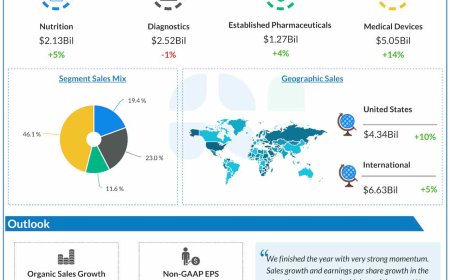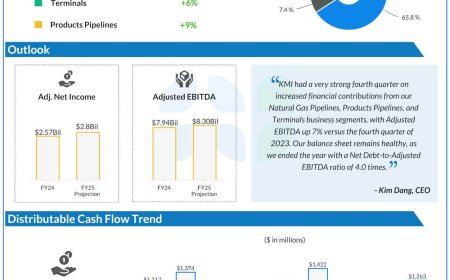Impact of Emerging Business Technology on Traditional Practices
Today’s business climate is driven into a never-ending flux by rapid technological advances. Year after year, new tools and technologies are coming along, promising to simplify operations, increase efficiency, and improve business operations. Any company that wants to stay competitive in a digital-first economy, especially nowadays, must know these trends. Automation in Business Operations The […] The post Impact of Emerging Business Technology on Traditional Practices appeared first on Insights Success.

Today’s business climate is driven into a never-ending flux by rapid technological advances. Year after year, new tools and technologies are coming along, promising to simplify operations, increase efficiency, and improve business operations. Any company that wants to stay competitive in a digital-first economy, especially nowadays, must know these trends.
Automation in Business Operations
The work of automation streamlining workflow processes is no exaggeration. Tools such as scheduling software that optimizes employee workloads and systems that sort and analyze data faster than ever help businesses run more smoothly and eliminate bottlenecks that also plague project timelines and deliverables.
Impact on Employment
- Creation of new tech-focused jobs: Automation, however, will replace routine tasks, and that’s where tech-savvy people will be required to manage and maintain these systems.
- Need for upskilling: To keep up with a changing workplace, employees must learn new skills that work together with automated systems.
- Shift in job roles: Some roles are shrinking due to automation, but roles related to strategic decision-making and innovation are increasing.
Blockchain Technology in Business
Blockchain technology is a decentralized database that stores all network transactions. In this way, we are certain that the data and its security are present, which is not tampering. Blockchain presents a seemingly straightforward and relatively cheap answer to solving this foundational security problem in many future business applications.
How Blockchain Technology Can Help You Simplify Your Financial Transactions
One of the most significant uses of blockchain technology is simplifying the financial process. An example is fast, secure, and transparent financial transactions that don’t involve traditional intermediaries (like banks) through blockchain. This ironed it out and shrunk transaction fees and processing times so much, it was the best possible tool for businesses that operate internationally. Learn about blockchain payments and how they simplify financial processes — this innovation offers businesses a significant advantage by minimizing complexity and enhancing efficiency in financial dealings.
Blockchain Beyond Payments: Other Uses in Business
By offering tamper proof, real time records of a product’s path from point of origin to point of sale, blockchain has the potential to extend beyond payments and apply to supply management. Moreover, it is a system which can seamlessly oversee intellectual property rights and display safe, transparent voting processes, which demonstrates its ability in other departments too.
Cloud Computing and Its Business Applications
Cloud computing is the revolution in IT, which has given businesses access to the Internet to rent computing resources. In this section, we explain cloud computing, discuss its benefits, and then discuss the risks and how to manage them when using cloud-based solutions.
Benefits of Cloud-Based Solutions
- Cost Efficiency: Reduces or eliminates the capital expense of buying hardware and software building and running on-site data centers.
- Scalability: Scales up or down, as per business demands. The flexibility of infrastructure allows it to change up or down as per the business demand.
- Accessibility: It allows teams to work closely together more effectively so employees can access information and applications from anywhere, anytime.
Risks and Management in the Cloud
However, cloud computing has pros and cons; the biggest dangers are data security and other things that may affect your business. Data breaches, inability to control sensitive data, and compliance with the law are never-ending. Risks from these incidents must be managed, which means reliability upon strong security measures. Compliance is needed regularly. Choosing good and reliable cloud providers and having a good security record are also important.
The Rise of E-commerce Platforms
Internet technology has grown exponentially, and online shopping has grown as well. E-commerce has sprung up from simple transactions with the simplest of items, now a part of this vast industry with everything, from everyday items to even expensive electronics and luxury goods.
Technologies Driving E-commerce Growth
Ecommerce growth is powered by mobile commerce, AI personalization, and secure payments. Such technologies make shopping easier and more personal, making it available every minute of every day. At the same time, they increase the efficiency in inventory and customer service management.
Future Trends in E-commerce
Next stage it is going through with them is the emerging trends such as augmented reality (AR) shopping experience, the drone delivery system etc. and will probably be changing its future with the help of them. In order to keep up with the modern day consumer, brands want to provide consumers more convenience, speed and flexibility. eCommerce platforms need to keep innovating in order to satisfy these demands in order to stay competitive.
Customer Relationship Management Technologies
CRM software manages a business’s contacts and connections with both present and future clients. It brings sales, marketing and customer service together into a single, easy to use platform. It enables you to communicate, interact with interactions, register important customer data, in one place. This approach gives companies a crystal clear view of their customers, allowing them to build strong partnerships and plan better.
Enhancing Customer Interaction through Technology
Progressive technologies have ushered in a new way of contacting customers with greater personalization, efficiency, and responsiveness. Data from different touch points provides a 360-degree view of the customer, and a business uses CRM technologies to send targeted messages, promotions, and solutions based on individual customer profiles. This also improves customer satisfaction, makes people more loyal, and increases retention.
Analyzing Customer Data for Business Growth
CRM enables businesses to learn from their customers and provides data upon which businesses can study to identify trends, preferences, behavior patterns, etc. The information helps with product development, marketing strategies, and customer services improvement. These data can be analysed by businesses to grow, improve and stay consumer oriented in the competitive market.
Cybersecurity in the Digital Age
Since businesses’ digital transformation, cyber threats have significantly increased risk. Company data and client privacy are at risk from phishing attacks, hacking, data breaches, and other issues. Because protecting sensitive information against these threats plays a vital role in maintaining trust and meeting regulatory standards, keeping it that way is so important.
Best Practices in Cybersecurity
- Regular Software Updates: Keeping software and systems current is the key to safeguarding against known vulnerabilities.
- Employee Training: Concerning many potential breaches, educating employees about cyber threats and the risks and signs that could signal a threat can go a long way.
- Multi-Factor Authentication: This adds another layer of security when implementing multi-factor authentication, making unauthorized access much more difficult.
Emerging Technologies in Cyber Defense
Every day, improvements in technology pour into creating cybersecurity strategies. AI and machine learning emerging tools are being used to better predict and respond to cyber threats. Moreover, blockchain technology is investigated to improve data integrity and security in various applications.
How Businesses Can Prepare for Technological Changes
The fast change in business technology demands companies to adopt new technology and adjust to changes. The right tools must be invested in. Training employees is important, too. Businesses must stay on the pulse of what’s new and gaining traction. They need to spend time preparing to change technology, protecting their operations, and finding ways to grow. Businesses can use technology correctly to improve efficiency, connect better with customers, and compete in an age dominated by digital.
The post Impact of Emerging Business Technology on Traditional Practices appeared first on Insights Success.










































